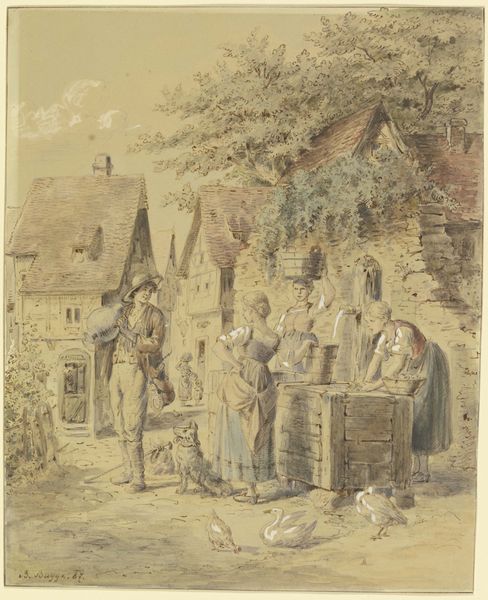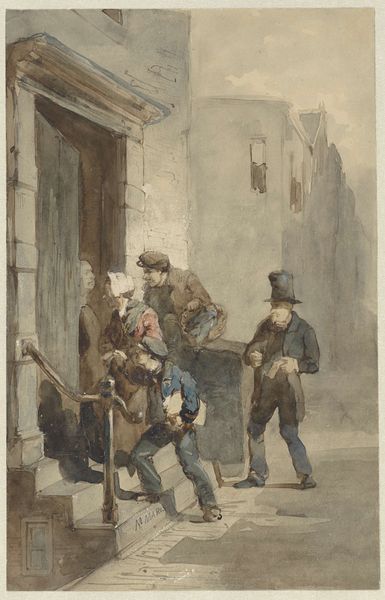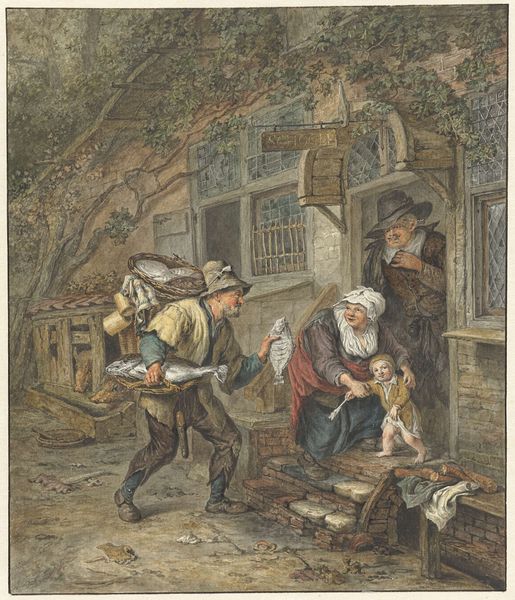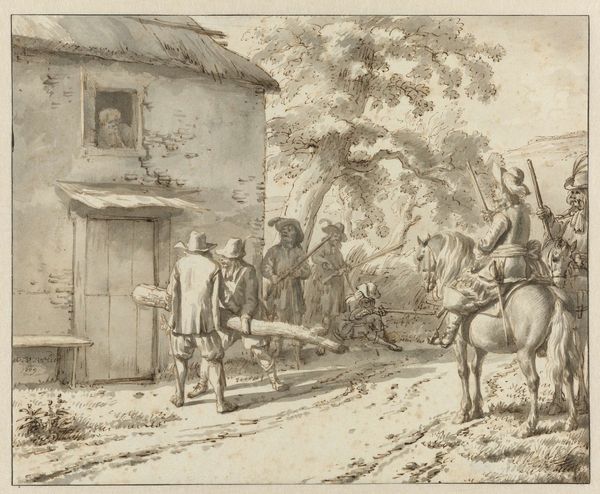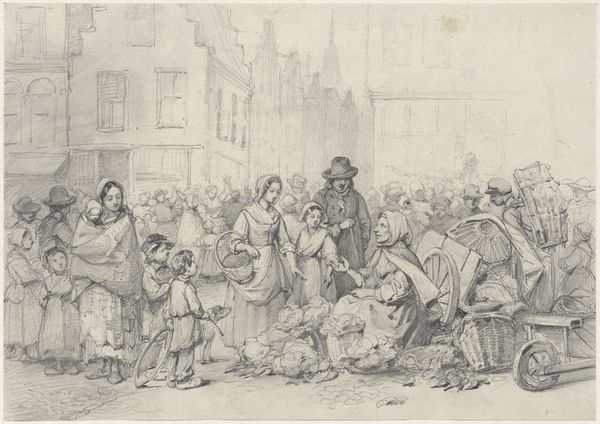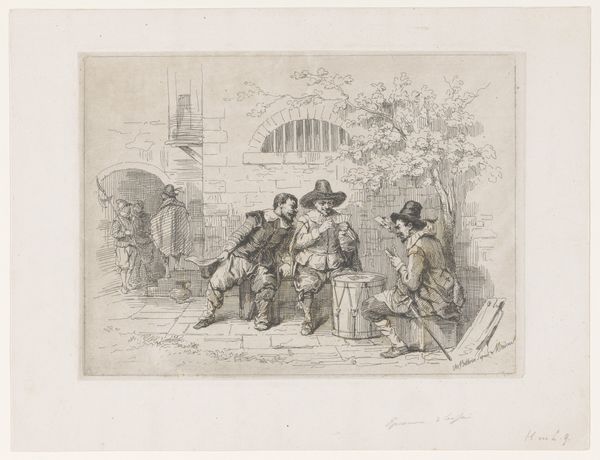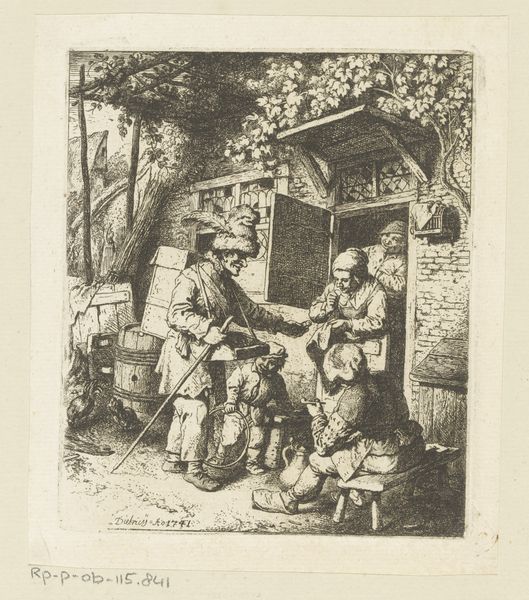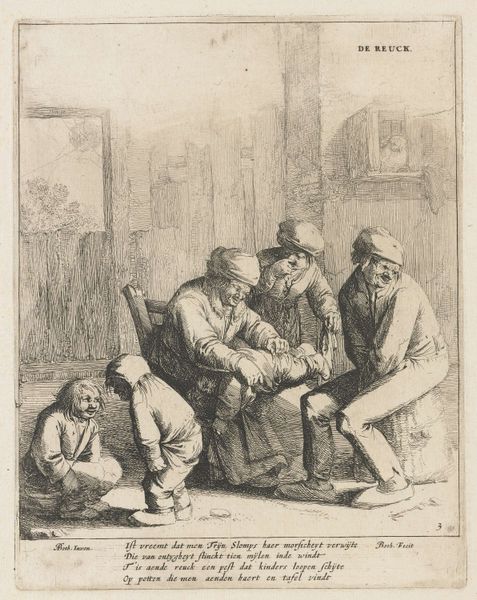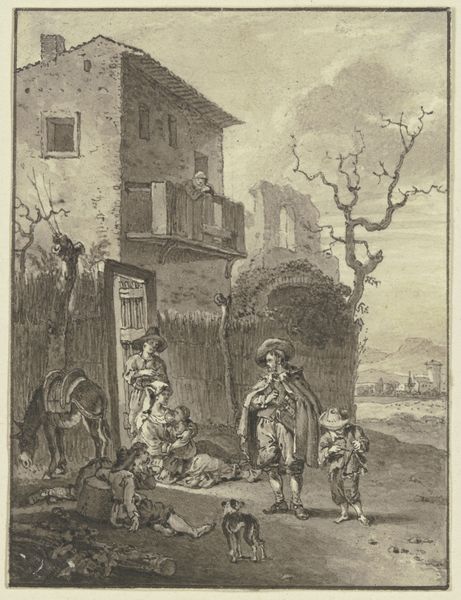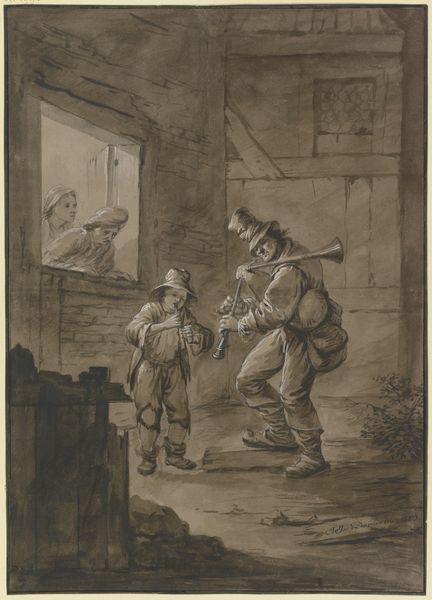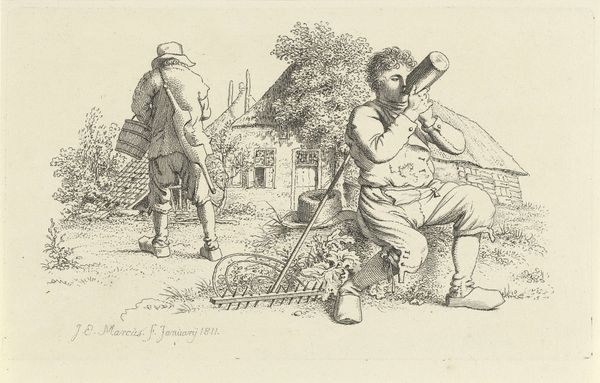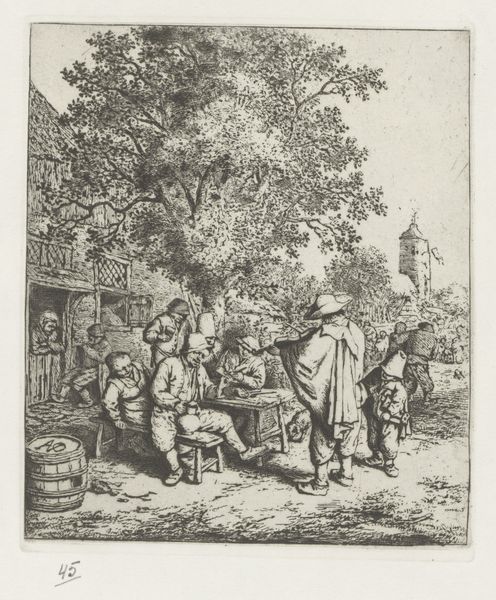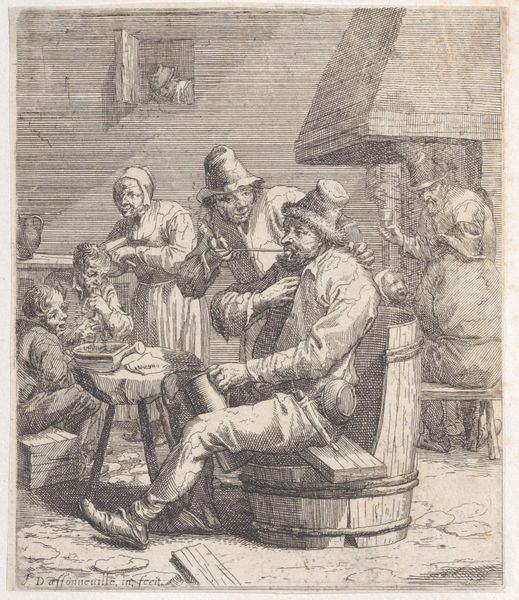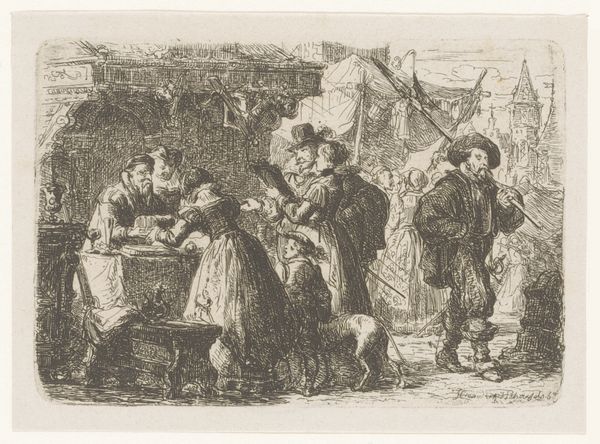
Vor einem Hause bietet ein Bauer mit einem Korb seine Erzeugnisse zum Kauf an, vorn links ein Hund, im Hintergrund ein Betteljunge
0:00
0:00
drawing, watercolor
#
portrait
#
drawing
#
dutch-golden-age
#
landscape
#
charcoal drawing
#
watercolor
#
watercolour illustration
#
genre-painting
#
watercolor
Copyright: Public Domain
Curator: This watercolor drawing at the Städel Museum, credited to Hermanus van Brussel, portrays a farmer offering his produce for sale in front of a house. A dog sits on the lower left and a boy begging is off in the background. Editor: My first impression is of a carefully constructed moment, where shadow and light help frame the mundane. It possesses a quiet drama—a realism undercut by almost idealized forms. Curator: Van Brussel here appears to engage with genre painting. It allows one to analyze daily life. The slight atmospheric perspective and casual arrangement of the figures certainly suggests an interest in rendering the scene realistically, but maybe with a social commentary too. Editor: I’m interested in the watercolor technique itself, how the wash creates distinct planes of depth while losing details to give volume. Look closely, and the limited palette emphasizes the geometric solidity and the underlying structure. Curator: Yes, consider the era. The Dutch Golden Age experienced an increased merchant class and the establishment of marketplaces in the public sphere. This era generated many works showing such activities. It could show a moment in history and possibly its politics. Editor: I agree that contextual analysis would certainly support your arguments. The spatial distribution of forms draws your eye to the left, in the dark, then flows up and around toward the farmer's wares and figures in light, but in this light it creates volume within the scene. Curator: The drawing style itself seems almost antiquated now, doesn't it? These Dutch masters still have their appeal, offering windows into different societies and economies. Editor: Absolutely. And that combination of pictorial space with social realism—it’s why it remains such a visually compelling document for art historical purposes, still affecting how we approach visual strategies today.
Comments
No comments
Be the first to comment and join the conversation on the ultimate creative platform.
